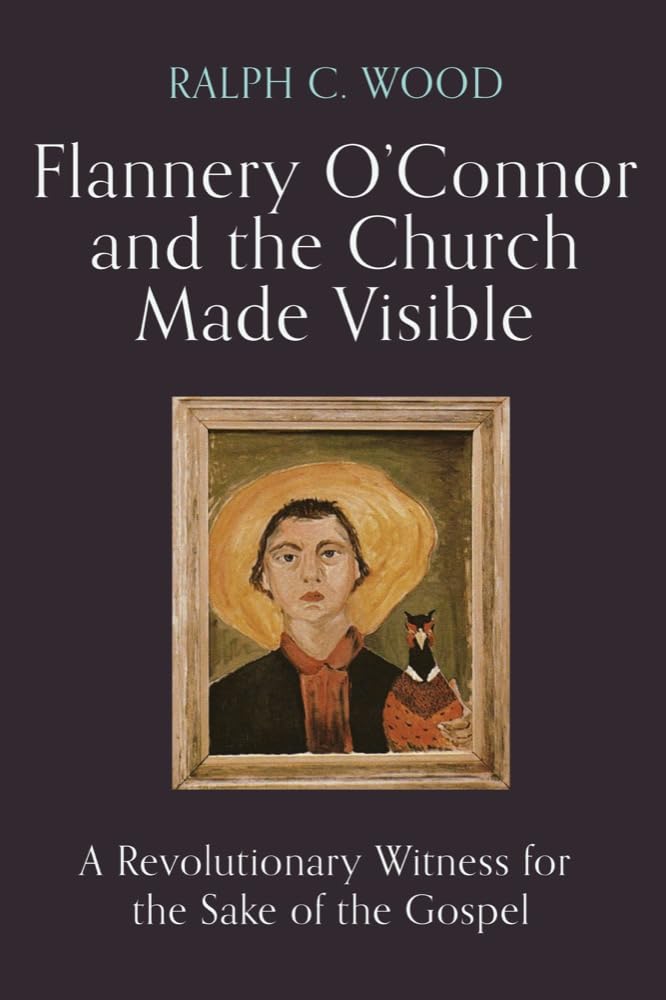
“On June 5, 2015, the U.S. Postal Service published a commemorative stamp in honor of Flannery O’Connor. She was an anomalous candidate for such acclaim, since her work stands at a critical distance from the American project, both in its older and more recent iterations. Precisely in her refusal to assimilate her fiction to the national consensus, she made her most valuable gift to it.
“The chief evidence for this claim is to be found in two 1963 issues of the Jesuit journal America that O’Connor read and marked only a few months before her death. In one essay, John Courtney Murray, the leading Catholic theologian on matters of Church and state at the time, expressed his hope that the Second Vatican Council’s forthcoming treatment of religious freedom would be in full accord with what he called ‘the true political tradition of the Christian West.’ The American constitutional system, in Murray’s view, has served to recover the Catholic rejection of all absolutisms, both ecclesial and governmental. It does so by insisting that ‘political authority has no part whatsoever in the care of souls (cura animarum) or in the control of the minds of men (regimen animorum).’ Hence Murray’s confidence that Dignitatis humanae, the Vatican II declaration on human freedom, would call for governments to remain secular and neutral by not according special privileges to any of the various religious traditions, but instead granting all of them freedom of both worship and belief.
“Yet at the very end of his essay, Murray expressed a certain worry about this neat separation of spheres, whereby Church and state attend to their complementary and rarely conflicting affairs: ‘The question today is, whether the Church should extend her pastoral solicitude beyond her own boundaries and assume an active patronage of the freedom of the human person . . . who stands today under a massive threat to everything that human dignity and personal freedom mean.’ Unlike Flannery O’Connor, Fr. Murray seemed impervious to the threats, both spiritual and physical, that might come from the American political system itself.
“The second essay, which O’Connor underlined and starred with asterisks, came from the young Jesuit theologian Bernard Coughlin, who argued a case much closer to O’Connor’s own position. Fr. Coughlin warned that the American principle separating Church and state, when joined with our religious pluralism, becomes ‘a principle separating church and society.’ It confines Christian faith to the private sphere, as if it were an inward and invisible thing, when in fact it is an outward, visible, public Thing, as Chesterton properly capitalized it, an unabashedly communal and thus an irreducibly political reality. The Church’s chief mission, therefore, is to worship the triune God and to practice its ethical life in full accord with its historic convictions. The Church is called to make prophetic witness, therefore, against all pretensions to secular autonomy. When the nation-state pretends to such sovereignty — as invariably happens — it is in fact no longer secular. It transforms itself into what Fr. Coughlin identified as ‘an antireligious religion.’ ‘To the Christian,’ he cautioned in June 1963, ‘secularism is a form of idolatry — the deification of man-made things.’
“Flannery O’Connor resisted such idolatry. She gave her lasting fealty to Jesus Christ and his visible Church. She did not pledge her deepest allegiance to the flag of the United States of America nor to its national deity. This refusal makes her political vision thoroughly Augustinian. She configured both her personal and political loyalties via the ordo amoris, as St. Augustine named it, placing them in their proper hierarchy of greater and lesser goods. . . .
“O’Connor’s Augustinian politics is made evident in her contention that there was something ajar virtually from the outset of the American experiment. She lamented that, in his 1832 refusal to celebrate communion at First Church Boston, without first removing the bread and wine, Emerson began ‘the vaporization of religion in America’ (The Habit of Being, 511). The anti-sacramental church is the spiritual, the discarnate, the invisible church. Will Herberg noticed similar contradictions inherent in ‘the American way of life.’ The consensus religion of the nation was not, Herberg insisted, a careful distillation of deep theological commonalities lying at the core of Protestant, Catholic, and Jewish faith. It was ‘a secularized Puritanism, a Puritanism without transcendence, without [a] sense of sin or judgment.’ Instead, there was a felt religious need to sanction American wealth and success. Hence the appeal to such vague terms as ‘service,’ ‘stewardship’ and ‘general welfare.’
“O’Connor also discerned the religious vacuity operating in the civic boosterism of the 1950s. An editorial in Henry Luce’s Life magazine riled her because it charged that the nation’s novelists, in their existentialist angst, were failing to celebrate their prosperous and optimistic country.
Luce’s editorialists summoned American writers to exhibit ‘the joy of life’ and ‘the redemptive quality of spiritual purpose.’ Where was such joyful and redemptively religious purpose to be found? For Luce and his barkers, it lay in the nation’s remarkable decade of success: its unprecedented wealth, its world-dominating military power, its virtual achievement of a classless society, at least in comparison with other nations. For Flannery O’Connor, when such purpose is located in economic prosperity, political power, and the like, it becomes idolatrous.”
— from Ralph C. Wood, Flannery O’Connor and the Church Made Visible: A Revolutionary Witness for the Sake of the Gospel (Baylor University Press, 2024)